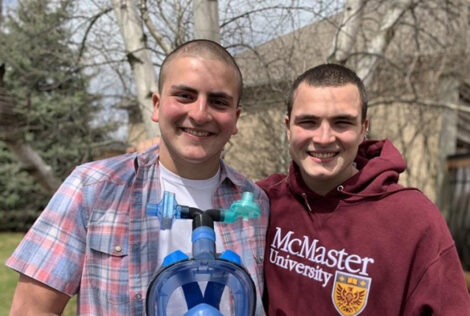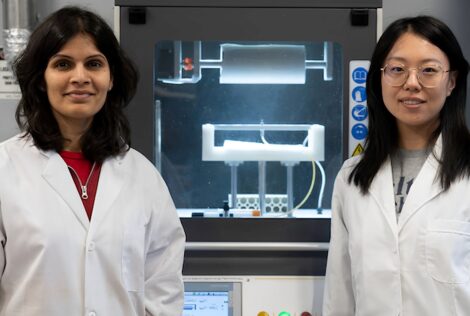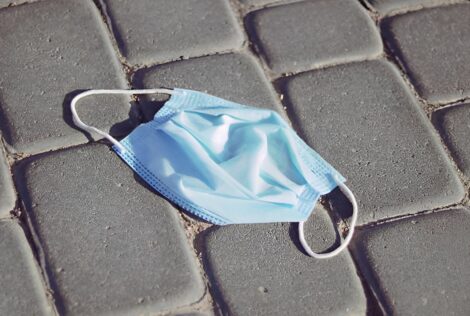
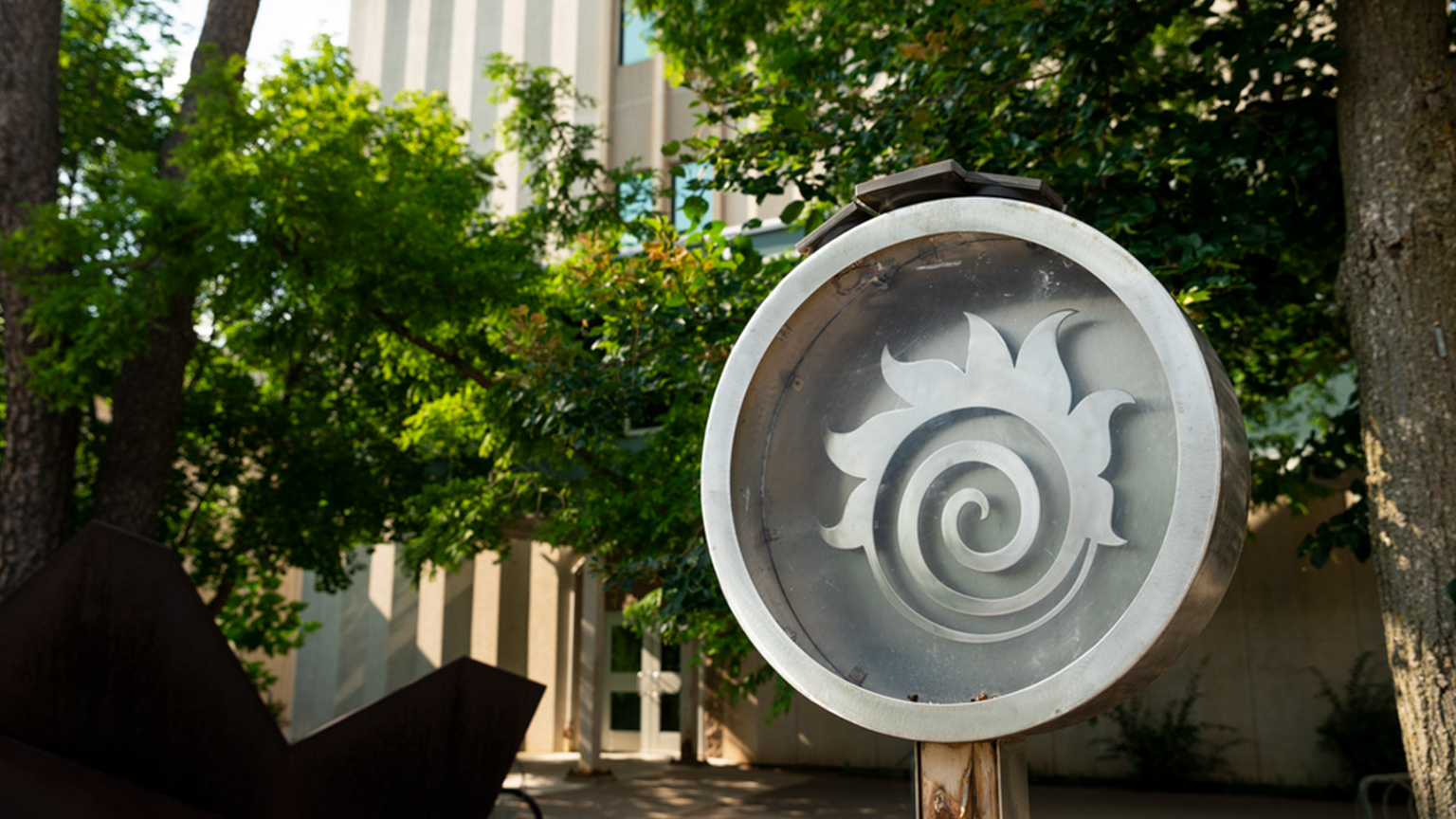
In the third part of the Mac Eng arms the frontlines series, we take a look at ventilators.
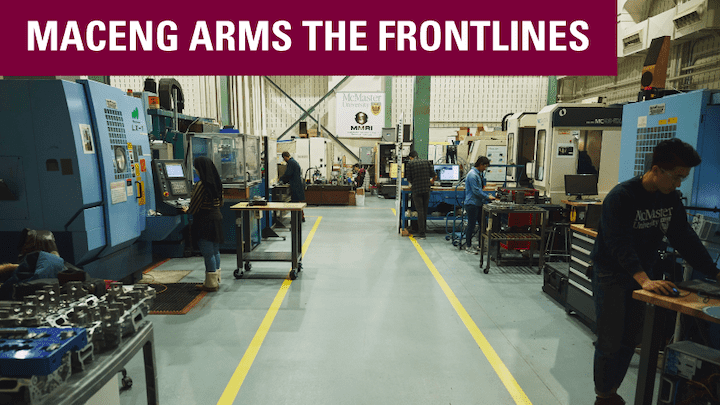
Faculty, staff and students across McMaster Engineering have turned their focus on creating solutions to combat the shortage of personal protective equipment (PPE) and medical devices for local healthcare workers.
This comes amid a call from the federal government for homegrown solutions to increase “desperately needed” equipment in the fight against COVID-19.
Overseen and coordinated by Associate Dean of Research & External Relations John Preston and Dean Ishwar K. Puri, teams are working with manufacturing companies, government partners and local healthcare professionals with the goal of soon getting these prototypes to the frontlines.
“There are close to a hundred individuals across the faculty – faculty, staff members and students – involved in these activities, some remotely and others in labs across campus,” says Puri, calling the collective efforts “large and heroic.”
The efforts are being coordinated by the office of the Associate Dean of Research, connecting teams working on similar projects to move progress forward.
“There’s no worry about overproduction of personal protective equipment – we’ll be dealing with COVID-19 for a while,” Preston said during a live virtual Q&A on Monday (re-watch it here). “There’s lots of people who would either urgently need that gear or see some reassurance from having it, including people caring for someone sick in their home.”
This story is part of a series looking at different ways MacEng is arming the frontlines. Here are our updates on surgical and N95 masks, and face shields. Below is the latest on the faculty’s ventilator projects.
Faculty and students get creative by repurposing ventilators
What is it?
McMaster engineers are teaming up with physicians and local industry partners to modify sleep apnea machines into ventilators for hospitalized COVID-19 patients requiring invasive ventilation.
These systems are designed to provide breathing support and alleviate the demand for the standard ventilator machines in non-critical cases.
Who is involved?
The McMaster Engineering researchers leading this work are Mo Elbestawi (W Booth School, Mechanical Engineering), Qiyin Fang (Engineering Physics), Greg Wohl (Mechanical Engineering) and Kathryn Grandfield (Materials Science & Engineering).
From the faculty of health sciences, Respiratory Medicine physicians Imran Satia and Kieran Killian, and Critical Care physicians Tim Karachi and Cindy Hamielec are instrumental in designing and testing the new ventilator.
Students involved include Skylar Wingfeld (L3, Eng Phys), Jana Strizak (L4, Eng Phys), Fahad Butt (L2, iBioMed-HESE), Dazana Hasan (L4, BTech/Automation), Mostafa Yakout (post-doctoral fellow), and PhD students Liza DiCecco, Mohamed Balbaa and Marcin Magolon.
Two local industry partners are also involved for research and development and production.
What’s the status?
The first prototype was built and tested. A revised design has been completed and a fully functional prototype will be built in April.
If successful, the team can quickly repurpose more than 1,000 sleep apnea ventilators for emergency COVID-19 use.
McMaster-based company innovates: The “Lunar Medical Pandemic Ventilator”
What is it?
A McMaster team is designing and testing a ventilator that can be made locally to help in the fight against COVID-19.
They’re aiming to make a model that able to support patients with viral-associated pneumonia and Adult Respiratory Distress Syndrome (ARDS), the respiratory condition associated with COVID-19.
Who is involved?
This project is led by Tom Doyle, associate professor in electrical and computer engineering, and David Musson, associate professor in the faculty of health sciences, through their biomedical technology company, Lunar Medical Inc., which is based out of McMaster Innovation Park.
Intensive care physicians from Hamilton Health Sciences and St. Joseph’s Healthcare, all of whom are members of the faculty of health sciences, continue to provide expert input.
Doyle and Musson are also working closely with Nova Analytical Systems, a unit of Tenova Goodfellow, who are based in Hamilton and have expertise in gas-handling technologies. They’re also in contact with several manufacturers regarding eventual production.
“Our goal is to develop a ventilator that will be approved by Health Canada and that can be assembled locally,” says Musson. “There are many challenges, including design, testing, certification, supply chain, and manufacture, but this is the time to step up and make it happen.”
What’s the status?
The team is currently testing and refining the prototype.
Medical devices made at McMaster Manufacturing Research Institute (MMRI)
What is it?
The MMRI team initially responded to the COVID-19 crisis where they saw the biggest need – by working on the design, prototyping and testing of different ventilators. This was part of a global initiative sharing lessons learned with other groups that were working on similar ventilator projects around the world.
Who is involved?
Simon Oomen-Hurst, program manager at the MMRI, led this effort with the team alongside Stephen Veldhuis, MMRI director and a mechanical engineering professor, and John Preston, associate dean of research and external relations at McMaster Engineering.
“We were trying to come up with a simple design that would be a stop-gap while the larger ventilator manufacturers are ramping up,” says Veldhuis. “Lots of designs are coming together to improve on the basic functionality [of the ventilators].”
The MMRI team works in close collaboration with Western University and the University of Waterloo as part of the Ontario Advanced Manufacturing Consortium. The three universities are currently sharing supplies of critically-needed materials to complete high-priority COVID-19 projects.
What’s the status?
Fortunately, existing supplies of ventilators appear to be meeting demand and the MMRI team has shifted to making personal protective equipment (PPE) to support local hospitals, says Veldhuis. Read more about the MMRI’s collaboration with Whitebird to produce face shields.
The team is branching out and looking into what other medical devices they can manufacture for local hospitals should the need arise. This includes intubation kits and sleeves used to cover glidescopes during intubation.
“What we’re trying to do now is have direct lines of communication with the medical teams, where when something comes up that they need that we’re working on, we’d be able to respond fairly quickly,” Veldhuis says.
Work with us! Find out how you or your organization can get involved

